-
Estes Fund Grants Aim to Raise Awareness of Computational Tools
The William K. and Katherine W. Estes Fund, which was created to honor the legacy of influential psychological scientist Bill Estes, has awarded three grants for programs focused on increasing awareness of how computational tools, models, and data collection can improve all areas of psychological science. Overseen jointly by APS and the Psychonomic Society, the Fund supports summer schools and workshops offering training in mathematical and computational modeling for PhD students, postdocs, and advanced researchers. It also promotes the teaching and practice of rigorous methodology in experimental and quantitative psychological science.
-
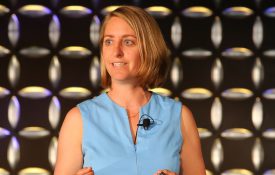
How Our Bodies Do – and Don’t – Shape Our Minds
Individuals’ bodies and their abilities to act within their environments shape their perceptions of their surroundings, says psychological scientist Jessica Witt, Colorado State University. Witt discussed the psychophysics experiments she’s conducted to demonstrate these perceptions during one of four presentations in a Presidential Symposium chaired by Susan Goldin-Meadow.
-
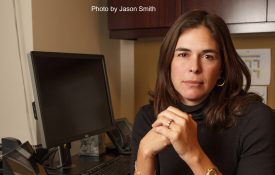
Beilock Named President of Barnard College
APS Fellow Sian L. Beilock, an award-winning scientist who has extensively researched people’s performance under pressure, has been named President of Barnard College effective July 1.
-
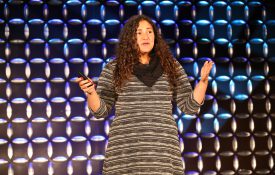
Laurie Santos on What Makes the Human Mind So Special
Psychological scientist Laurie R. Santos of Yale University says that her cognitive experiments with monkeys and dogs suggests that humans’ unique ability to understand others’ mental states can, in many cases, actually cause us to confuse that thinking with our own. See her complete presentation at the 29th APS Annual Convention in Boston.
-
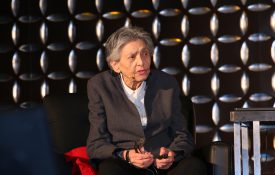
Lila Gleitman on Language Evolution
In the Fred A. Kavli Keynote Address at the 29th APS Annual Convention, APS Fellow Lila R.Gleitman shared her six decades of theoretical and empirical work on the remarkably sophisticated way that children acquire language. See the complete presentation.
-
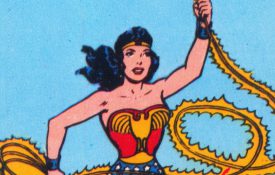
Wonder Woman’s Secret Roots in Psychological Science
Wonder Woman was first showcased in a 1941 issue of All-Star Comics, but her origins can be traced back to a psychophysiology lab started by William James.

